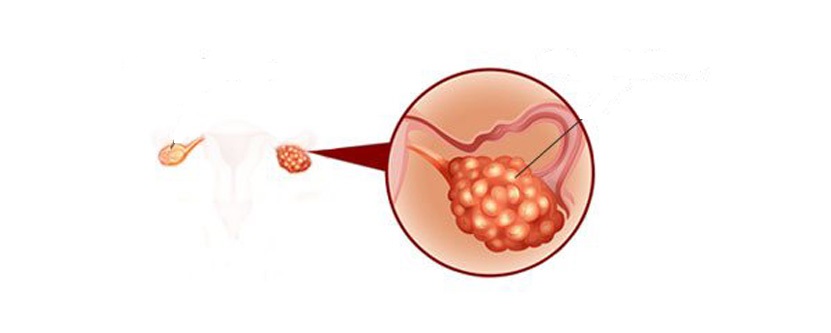What is PCOD?
Polycystic Ovary Disorder (PCOD) is a hormonal disorder in women defined by a group of signs and symptoms.
[the_ad id=”6155″]
PCOD is one of the most common reasons for infertility in women. This health condition can cause problems with a woman’s menstrual cycle, cardiac function as well as appearance. Women who have polycystic ovary have multiple small cysts in their ovaries that occur when the regular changes of a normal menstrual cycle are disrupted.
PCOS occurs not just in women, but in girls as young as 11. Polycystic ovaries are generally larger in size and denser than the normal ovaries. It usually occurs when the sex hormones go out of balance and the body starts producing more male hormones resulting in the onset of several symptoms.
PCOD Symptoms
PCOD symptoms are related to menstrual disturbances and excess levels of androgens.
- Menstrual disturbances can include delay of normal periods, the presence of fewer than normal menstrual periods, or the absence of periods for over three months. A woman’s menstrual cycle may not be associated with ovulation and may result in heavy bleeding.
- Irregular periods
- Reduced fertility
- Abnormal weight gain or obesity
- Heart (cardiac) complications
- Acne or skin rashes
- Abnormal hair growth or hair loss
Causes
No one really knows what exactly causes PCOD, but it is likely to be the result of a number genetic and environmental factors. Researchers are studying the role that genetics might play in this development. Excess production of the hormone androgen can also cause PCOD.
- Hereditary – If your mother or sister have a history of PCOD, then chances are you too might get diagnosed with this health issue.
- Low-grade inflammation – When women have low-grade inflammation, it stimulates ovaries to produce androgens, leading to PCOD.
- Hormonal imbalance- Any imbalance of the hormones can affect the body drastically. The reason: hormonal imbalance causes problems not only with fertility and ovulation but also with hair, skin, weight and more.
PCOS Management
- A healthy diet and moderate exercise is recommended to all women with PCOS, especially those who are overweight. This can help regulate the menstrual cycle and lower blood glucose levels.
- Women who are not planning to conceive may be prescribed birth control pills. These pills can help treat acne, regulate the menstrual cycle and lower levels of male hormones, like testosterone, in the body.
- If a woman is suffering from infertility, fertility drugs may be administered to aid ovulation.
- If a woman is overweight, the doctor may recommend weight loss through a low-calorie diet combined with moderate exercise. In fact, losing 5% of body weight can help improve PCOD condition.
- Anti-androgens are drugs that reduce male hormone levels, help stop abnormal or excess hair growth and reduce acne.
- For those women who are suffering from diabetes, diabetes medications may also be prescribed to lower blood glucose levels and testosterone levels.
- Lastly, surgery may be recommended to some women. Ovarian drilling is a procedure used by doctors, but it is a short-term solution that can promote ovulation and reduce male hormone levels.
There is no medication as such to cure PCOD completely, but you can avoid the discomforts of the disease by maintaining a healthy lifestyle, following the right diet and staying away from stress.
Source:

